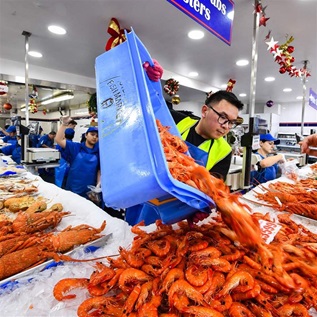OCEAN2012 Calls EU Fisheries Subsidies 'Blind Spending'
Markus Knigge, adviser to the Pew Environment Group's European Marine Programme and the OCEAN2012 coalition, issued the following statement today as the European Commission published its proposal for the next fisheries subsidies instrument, the European Fisheries and Maritime Fund.
“In 2008, the European Commission identified overcapacity as one of the primary drivers of overfishing, and public subsidies as fuelling the problem. Yet a recent Commission report showed that many member states do not even assess the capacity of their fishing fleets, confirming that EU funds are being spent blindly. Between 2000 and 2008, for example, the EU provided €33.5 million in financial aid for the modernisation of bluefin tuna fishing vessels, which target a species that is so overfished, it is classified as endangered by the International Union for Conservation of Nature.
“With an economic crisis spreading throughout the EU, the public cannot afford blind and counterproductive spending of EU fisheries subsidies. Future assistance should support the delivery of a healthy marine environment and a transition to sustainable fisheries.”
Notes:
1. A list of vessels in the tuna fleet that receive EU subsidies is available at www.fishsubsidy.org/EU/tuna-fleet, and a list of vessels convicted of serious infringements (illegal fishing) is available at http://www.fishsubsidy.org/infringements/. A list of vessels that received EU grants for modernisation and shortly afterwards grants for scrapping is available at: http://www.fishsubsidy.org/news/features/modernised-then-scrapped/
2. Detailed analysis of EU fisheries subsidies from 2000 to 2006 is available in “FIFG 2000-2006 Shadow Evaluation” (Cappell, R., T. Huntingdon and G. Macfadyen) at http://www.pewenvironment.eu/resources/view/id/115178?download=true3.
3. www.fishsubsidy.org details fisheries subsidies payments under the present European Fisheries Fund (2007 – 2013) and the Financial Instrument for Fisheries Guidance (1994-2006)
3. Reflections on further reform of the Common Fisheries Policy http://www.cfp-reformwatch.eu/pdf/reflection_cfp_08_mid.pdf
4. Report from the European Commission on EU Member States' efforts during 2009 to achieve a sustainable balance between fishing capacity and fishing opportunities http://ec.europa.eu/fisheries/cfp/fishing_rules/fishing_effort/official_documents/com_2011_354_en.pdf
6. OCEAN2012 is an alliance of organisations dedicated to transforming European fisheries policy to stop overfishing, end destructive fishing practices and deliver fair and equitable use of healthy fish stocks.











